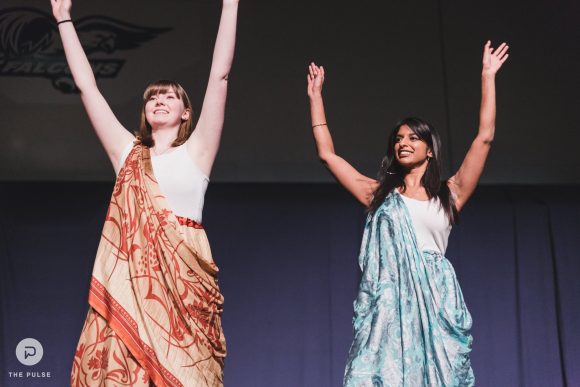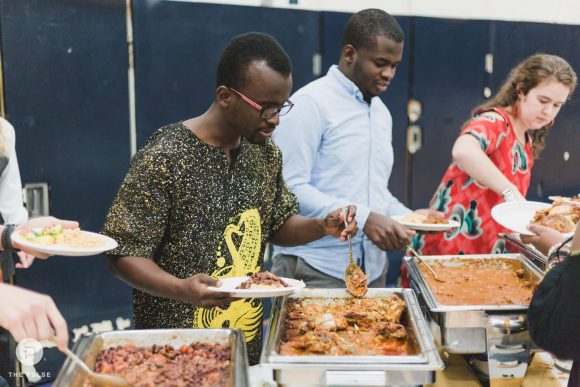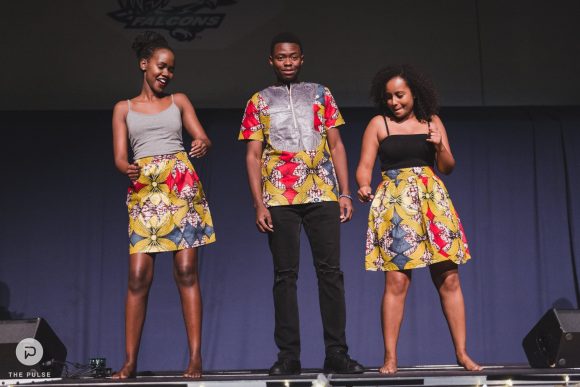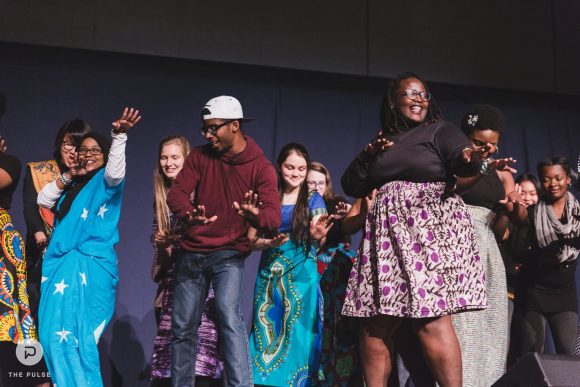Leanne Tan
Student Writer
Lively African music and dances filled Brubaker Auditorium for Karibu Night this past Saturday evening. Around 300 students, faculty members, alumni and guests came out to celebrate diversity in African cultures.
Hosted by the African Student Union (ASU), the program immersed guests in a cultural experience with singing and dancing, an Ethiopian coffee ceremony, a drums performance, spoken word, poem, rap, fashion show and last but not least, traditional African food.
According to ASU president Laura Almeida, one thing ASU hoped to highlight during Karibu Night this year was diversity across the African continent.
“There’s a lot of things that unite Africans, but there’s also a lot of differences between them,” Almeida said. “A lot of people tend to generalize Africa as just [having] one culture. So, we want people to see the diversity [of the different African countries] and the beauty in it.”
The planning committee intentionally selected dishes from different parts of Africa. Courtesy of Catering Services, food options included cucumber mango salad, beef stew, jollof rice, kidney beans and plantains.
“It’s hard to represent every African country when it comes to food because each part of Africa is very different,” Almeida said. “But we picked foods that people usually think of when it comes to African food.”
Diversity in African cultures was also displayed in the fashion show, which was divided into two parts. The first segment featured traditional clothes across Africa, while the second showcased contemporary Cameroonian outfits from Nyianga Store in Harrisburg.
In addition to celebrating culture and diversity, the program aimed to educate guests about the misconceptions and generalizations about Africa.
“Yes, we want to celebrate the beauty of Africa, but we also want to break down the stereotypes that are always or mostly associated with Africa,” ASU public relations officer Belosan Jekale said. “If we don’t talk about those serious things, then how can we actually educate people?”
Going off last year’s event that focused on the danger of the single story of Africa, the program this year focused on the lesser-known aspects of the continent, the part that is seldom brought up in discussions about Africa and its people. To accomplish this goal, emcees Almeida and Femi Obadina, the community organizer of ASU, seized the opportunity in between performances to showcase a total of six influential African figures. They were Chimamanda Ngozi, Denis Mukwege, Sahle-Work Zewde, Awe Kludze, Kofi Annan and Yvonne Mburu.
“We’re trying to show people that Africans are not just receiving help, but there’s also a lot of influential Africans who have impacted or are impacting, not just Africa, but the whole world,” Almeida said.
Sophomore history major Anna Strange, who attended the program, enjoyed learning about the influential African figures.
“I learned a lot about the influential people,” Strange said. “The facts about them, except for the first woman president of Ethiopia (Zewde), were all new to me.”
Additionally, guests were shown an educational video, which featured some Africans students reacting to stereotypes portrayed in movies and a couple other students sharing about their experience studying abroad in Africa. The video deconstructed stereotypes associated with Africa and revealed to the audience the truth about them.
“People associate the African continent with poor people and nothing else beyond that,” Almeida said. “It’s important to change this – the single narrative of Africa. And it’s a process, so in every event that we do, it feels like it’s almost our duty to try to plant a seed in people’s minds that there’s a lot more to the African continent.”




